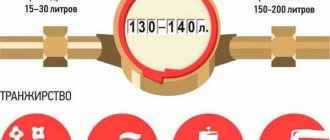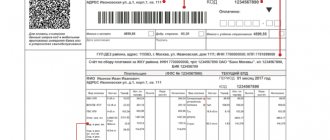Home/Utilities
The rules establishing the procedure for the provision of utility services in 2021 strictly regulate the relationship between premises owners and resource providers, namely:
- rights and obligations of consumers and service providers;
- conditions and procedure for executing an agreement for the supply of resources;
- the procedure for carrying out activities aimed at monitoring the quality of public services;
- methodology for calculating the cost of services provided.
But what is the very concept of “utilities”? How is their cost calculated and what changes await Russian citizens in 2019-2020?
What are utilities?
Utilities (CS) are the result of activities aimed at maintaining safe and comfortable operation of residential or commercial premises by the user. In turn, the right to use such services in 2021 has:
- owners of premises and members of their family;
- citizens who received real estate from a cooperative;
- persons renting residential or commercial premises in an apartment building.
Attention
Both an individual and a legal entity, individual entrepreneur, can act as a consumer of utility services.
Website of the State Budgetary Institution "Zhilishchnik" of the Basmanny district
Dear residents of the Basmanny district!
Your management organization, the State Budgetary Institution “Zhilischnik Basmanny District”, provides paid services for plumbing, electrical installation, finishing, carpentry, carpentry and glass work in apartments and other properties owned by you. The list and prices of paid services can be found on this website.
The procedure for providing a paid service:
- As part of the implementation of the “Unified Dispatch Center” project, from April 9, 2021, all calls from residents of the Central Administrative District are received via a single direct number of the EDC contact center, where a call center operator will help solve your problem.
- The operator will fill out an application and agree on a date and time convenient for you, according to the Zhilischnik’s working hours, and transfer the application to the Zhilischnik. In the case of a paid service, payment can be made: by receipt through the cash desk of a credit institution;
- payment in cash according to a cash receipt order;
- payment by bank card via POS terminal;
- payment on the site.
Attention! Applications in the area of responsibility of the Resident (common property) are carried out through the monthly payment by the owners for the maintenance and current repairs of the common property of the apartment building in receipts of a single payment document (UPD).
Regulations for the provision of paid services (work) to the population provided by the State Budgetary Institution “Zhilischnik Basmanny District”.
A collection of prices for work on the maintenance and ongoing repairs of intra-block equipment that is not related to the common property in an apartment building.
“On approval of rates and prices for certain types of work on the maintenance and current repairs of common property in an apartment building”
| Unified price list of prices of the State Budgetary Institution “Zhilischnik” of the districts of the Central Administrative District of Moscow for work on the maintenance and routine repairs of intra-apartment equipment that is not related to the common property in an apartment building | ||
| Plumbing work not listed in the price list is priced | rub./hour | 600 |
| Purchasing materials for plumbing work | rub. | 400 |
| Forced downtime of the master, due to the fault of the client | rub./hour | 300 |
| Additional applied coefficients: | coefficient | |
| Coefficient for working in cramped conditions | 1,5 | |
| Working with expensive plumbing materials | 1,5 | |
| Work at heights over three meters | 1,5 | |
| For evening orders (after 18:00 to 22:00) | 1,5 | |
| Legal entities and individual entrepreneurs | 1,5 | |
| Coefficients applied to preferential categories of citizens | coefficient | |
| Disabled people with limited ability to work 3 groups | 0,5 | |
| Combat veterans | 0,5 | |
| Participants, veterans and disabled people of the Great Patriotic War and persons equivalent to them | 0,3 | |
| Disabled people with limitations in their ability to work in groups 1 and 2 | 0,3 | |
| Persons exposed to radiation as a result of the disaster at the Chernobyl nuclear power plant, as well as as a result of nuclear tests at the Semipalatinsk test site, and categories of citizens equivalent to them | 0,3 | |
| Large families. | 0,3 | |
The unified district price list can be downloaded in Excel format
Legal basis
The legislative act regulating relations in the field of corporate governance is Decree of the Government of the Russian Federation No. 354 of 05/06/2011. This document establishes the rules for the provision of utility services to users and also reflects the main changes:
- information on the revision of coefficients used in calculating tariffs for gas utilities;
- information about tariff changes;
- information about changes in the installation procedure for metering devices.
For your information,
the basic rights and obligations of homeowners related to the creation of an HOA, payment of utilities and the choice of a management company are reflected in the Housing Code of the Russian Federation (sections VI, VII, VIII, respectively).
Another important document regulating the methodology for accounting for utility services is Rosstat Order No. 234 dated June 26, 2013. The main difference of this legislative act is the fact that the scope of the CG reflects not only the services included in the main list, but also work related to the repair, installation and configuration of operating metering devices.
In addition, in their work to provide resources, housing complex organizations are guided by the Civil Code of the Russian Federation, the Code of Administrative Offenses of the Russian Federation, the Water Code of the Russian Federation, and Federal Laws No. 69, No. 210.
Rules of law governing housing legal relations
Housing relations arising between consumers and suppliers are regulated by the following regulations:
- Housing Code of the Russian Federation. Article 162 of the LC[1] contains a list of actions that must be carried out by the Criminal Code and the procedure for their execution.
- Civil Code of the Russian Federation. Article 421[2] of the Civil Code of the Russian Federation regulates contractual obligations arising between the parties.
- Federal Law of the Russian Federation No. 2300-1 “On the protection of consumer rights.” This Federal Law, namely Chapter III, establishes requirements for the quality of work and liability for violation of the law.
Also, this area of legal relations is regulated by acts of Federal and local executive bodies and the Government of the Russian Federation. Tariffs for utility services are set by local executive authorities.
List of utilities in 2021
According to clause 4, ch. II of Government Resolution No. 354, the list of utility services provided to owners and users of residential and commercial premises in 2021 includes:
| Cold water supply | Round-the-clock supply of cold water of proper quality (purified from pathogenic microorganisms, harmful chemical compounds) through a central or intra-house network. |
| Hot water supply | 24-hour supply of hot water of proper quality, temperature from +400 to +750C. A break in the supply of hot and cold water is permissible within 8 hours or a day (subject to major accidents). |
| Water disposal | Discharge of wastewater through centralized networks. |
| Electricity supply | Uninterrupted supply of electrical energy in volumes sufficient to operate appliances installed in an apartment building. |
| Gas supply | 24-hour gas supply via a centralized network. In the absence of the latter, it is permissible to provide the resource in gas cylinders. |
| Heating | Supply of heat energy through centralized or intra-house networks throughout the entire heating season to maintain the temperature in heated rooms at least 180C. We allow a break in supply no more than a day per month, in this case: Ø no more than 16 hours in a row at an average daily temperature of +120C; Ø no more than 8 hours in a row at an average daily temperature of +100C; Ø no more than 4 hours in a row at an average daily temperature of +80C. |
| Solid waste removal | Collection, removal, neutralization and disposal of household waste in quantities generated by users of residential and commercial premises. |
IMPORTANT
Utilities paid by users cannot include an item that is not related to a specific home, for example, a fee for gas supply, in the absence of it, cannot be charged.
Paid management services
| № | Services provided | Unit change | Cost, rub. | Note |
| 1 | Dismantling of water taps, valves, check valves | PC. | 50 | |
| 2 | Dismantling the mixer | PC. | 100 | |
| 3 | Installation of washbasins with cold water supply. and hot water | comp. | 700 | |
| 4 | Installation of a sink with cold water supply. and hot water | comp. | 500 | |
| 5 | Installation of a toilet with installation | comp. | 2000 | |
| 6 | Installing a toilet with a directly attached cistern | comp. | 1000 | |
| 7 | Installation of a flush cistern | PC. | 350 | |
| 8 | Installation of valves, check valves, ball valves, gate valves on pipelines made of steel pipes dia. up to 25 mm | PC. | 200 | |
| 9 | Installing a faucet on a “Tulip” kitchen sink with network connections | PC. | 500 | |
| 10 | Installing a bathtub faucet with a shower head | PC. | 700 | |
| 11 | Installation of heated towel rails from water and gas pipes with material | PC. | 1000 | Including towel dryer |
| 12 | Installation of heated towel rails made of brass, chrome-plated pipes with connection | PC. | 650 | |
| 13 | Installation of radiators, cast iron | 1 section | 120 | |
| 14 | Installation of radiators, steel | 100kW L=1.1m | 100 | |
| 15 | Installation of taps on heating devices, connection to the system | PC. | 250 | |
| 16 | Installation of filters dia. 15-25 mm | PC. | 150 | |
| 17 | Installation of steel bathtubs | PC. | 900 | |
| 18 | Installation of cast iron bathtubs | PC. | 1300 | |
| 19 | Installation of a water meter (meter) | PC. | 200 | |
| 20 | Installation of "Tulip" | PC. | 1000 | |
| 21 | Installation and connection of "Moidodyr" | PC. | 1500 | |
| 22 | Removing a water meter (meter) | PC. | 100 | |
| 23 | Adjusting the cistern | PC. | 70 | |
| 24 | Cleaning the sewer network (internal) | mp | 120 | |
| 25 | Changing a steel bath | PC. | 950 | |
| 26 | Replacing a cast iron bathtub | PC. | 1500 | |
| 27 | Change of sink | PC. | 700 | |
| 28 | Changing the siphon | PC. | 150 | |
| 29 | Changing the sink | PC. | 200 | |
| 30 | Changing gaskets dia. 15-20 mm | PC. | 20 | |
| 31 | Changing thread dia. 20 mm | PC. | 100 | |
| 32 | Changing thread dia. 25-32 mm | PC. | 120 | |
| 33 | Welding threads to steel riser pipes 15-32 mm | PC. | 300 | |
| 34 | Changing the washbasin | PC. | 800 | |
| 35 | Changing a simple toilet | PC. | 500 | |
| 36 | Replacing a Compact toilet | PC. | 1200 | |
| 37 | Changing the flush cistern | PC. | 450 | |
| 38 | Sealing the water meter after its violation by the consumer | PC. | 70 | |
| 39 | Changing corrugations. pipes to the toilet | PC. | 120 | |
| 40 | Changing the cistern fittings | PC. | 200 | |
| 41 | Changing fittings - valves, check valves, couplings, locknuts | PC. | 250 | |
| 42 | Removing the heated towel rail | PC. | 100 | |
| 43 | Changing flexible hoses | PC. | 30 | |
| 44 | Removing the kitchen sink | PC. | 200 | |
| 45 | Dismantling the Tulip washbasin | PC. | 300 | |
| 46 | Changing squeegees | PC. | 100 | |
| 47 | Change of internal pipelines from PVC sewer pipes dia. up to 50 mm | mp | 250 | Taking into account material |
| 48 | Change of internal pipelines from PVC sewer pipes dia. up to 100 mm | mp | 500 | |
| 49 | Laying plastic pipes dia. up to 20 mm | mp | 450 | Taking into account material |
| 50 | Laying plastic pipes dia. up to 32 mm | mp | 650 | Taking into account material |
| 51 | Dismantling of pipelines from water pipes dia. up to 32mm | mp | 120 | |
| 52 | Dismantling PVC pipes dia. 50-100mm | mp | 50 | |
| 53 | Dismantling cast iron pipes dia. 50-100mm | mp | 100 | |
| 54 | Rearrangement with connection and reconnection of one radiator section with a weight of up to 80 kg | PC. | 400 | |
| 55 | Dismantling of heating devices up to 80 kg (cast iron) | PC. | 300 | |
| 56 | Dismantling heating devices (steel) | PC. | 200 | |
| 57 | Sealing holes in ceilings | PC. | 350 | Taking into account cement/mortar |
| 58 | Punching holes in brick walls | PC. | 300 | |
| 59 | Punching holes in concrete walls | PC. | 500 | |
| 60 | Faucet repair (change of spout) | PC. | 50 | |
| 61 | Replacing radiator block adjustment valves | 1 tap | 250 | |
| 62 | Dismantling the siphon | PC. | 50 | |
| 63 | Installation of a water heater up to 50 l | PC. | 1200 | |
| 64 | Installation of a water heater over 50 l | PC. | 2000 | |
| 65 | Dismantling cast iron bathtubs | PC. | 500 | |
| 66 | Dismantling of steel bathtubs | PC. | 300 | |
| 67 | Dismantling the toilet | PC. | 300 | |
| 68 | Welding plastic pipes dia. up to 32 mm | PC. | 120 | |
| 69 | Punching grooves in concrete structures 25 mm | 1m | 400 | |
| 70 | Punching grooves in concrete structures 50 mm | 1m | 600 | |
| 71 | Punching grooves in brick structures 25 mm | 1m | 300 | |
| 72 | Punching grooves in brick structures, diameter 50 mm | 1m | 500 | |
| 73 | Eliminating leaks from flexible hoses, connecting sanitary fixtures | 1 connection | 30 | |
| 74 | Temporary sealing of fistulas on pipes dia. up to 50mm | 1 place | 100 | |
| 75 | Replacing the valve head flywheel on the mixer | PC. | 30 | |
| 76 | Coating sewer joints with cement dia. 50mm | 1 joint | 100 | Taking into account cement/mortar |
| 77 | Coating sewer joints with cement dia. 100mm | 1 joint | 120 | Taking into account cement/mortar |
| 78 | Disconnection and connection of risers (disconnection point) | PC. | 200 | |
| 79 | Calling the controller | call | 100 | |
| 80 | Call the master | call | 150 | |
| 81 | Call a plumber | call | 100 |
Note:
1. Prices for work performed and services provided to the population of the city of Zheleznogorsk are applied taking into account:
1.1. Auxiliary materials (flax fiber, carbide, welding wire, oxygen, electrodes).
1.2. Delivery of mechanisms, materials, finished parts, spare parts to the site, including their loading and unloading.
1.3. Installation and removal of barriers and warning signs.
Cost of finished units, spare parts and parts replaced during maintenance
and repairs, as well as the materials used, other than those listed above, are not included in the price list
and is paid by the customer additionally according to the current retail holiday allowances (market, contractual)
prices or at the price of production in a specialized workshop of Engineering Center LLC.
2. The complexity of the work is established in man-hours per unit of measurement of the volume of work in accordance with the “State elemental estimate standards for construction and repair work” approved by the Federal Agency for Construction and Housing and Communal Services (Rosstroy) in 2001. recommendations on the standardization of labor for workers involved in the maintenance and repair of housing stock (MDK-2-02.01), approved by the State Construction Committee of Russia.
3. Prices for maintenance and repair of heating, water supply, sewerage and electricity systems are set for a one-time performance of work.
4. Repair of heating, water supply, sewerage and electrical supply systems is carried out upon application and is paid at the prices of this price list, including the cost of calling a mechanic to perform the repair.
5. Benefits have been established in the amount of 50% of the cost of services for the following categories of residents: veterans and disabled people of the Second World War.
The benefit is provided subject to the provision of a copy of the document confirming the right to the benefit.
6. Payment for services is made according to receipts issued by the contractor, or to the cash desk of the enterprise.
7. The prices in this price list are valid until December 31, 2021.
Who is providing utilities in 2019?
According to clause 8, ch. II, Resolution No. 354, the provider of public services in 2021 may be a legal entity (regardless of the legal form) or individual entrepreneur, in this case:
- for premises owners, the executor is the management company or other organization servicing the apartment building;
- for tenants - directly the landlord or an organization authorized by him.
In the Housing Code of the Russian Federation, namely in Art. 161, the main methods of managing MKD are listed:
- through the HOA;
- through housing or other cooperatives;
- through the management company;
- through direct control.
The executor of the CG can be either a management company, HOA or cooperative, or directly a resource supplying organization, in this case:
| Management Company | Becomes the Contractor from the date specified in the decision of the owners of the apartment building premises. |
| HOA or cooperative | Provides CG from the date of its registration, but not earlier than the date specified in the agreement with the resource supplying organization. |
| Resource supplying organization | Acquires the status of Contractor from the date specified in the decision of the general meeting of owners of residential and commercial premises. |
Tariffication
Every year there are more and more organizations that provide utility services. And many management companies illegally inflate the cost of their work. Therefore, local executive bodies set restrictions on the amount of their cost. Every year, the competent authority and the tariff commission of a separate subject of the state issues a resolution that specifies the standards. But they set restrictions only on certain types of utilities. The maximum rate of additional services is determined by housing and communal services and the meeting of owners of an apartment building.
Functions and responsibilities of housing and communal services for the provision of public services
Providing an apartment building with utilities of appropriate quality and in the required volume in 2021 is the main responsibility of the management company, HOA or cooperative. Thus, the main functions of housing and communal services include:
- control over the quality of services provided and the timeliness of their delivery by the resource supplying organization;
- calculation and acceptance of payments for utilities, monitoring the timeliness of receipt of funds from premises owners;
- distribution of funds received, searching for counterparties, concluding contracts, drawing up estimates;
- creating conditions that ensure efficient and safe operation of premises located in apartment buildings;
- interaction with CG users, resolving controversial issues, considering complaints and suggestions.
The procedure for providing utility services in 2021
The main legislative act regulating the provision of CG to the population in 2021 is Government Decree No. 354. According to clause 3, chapter. II, utilities are supplied to users under the following conditions:
- Providing resources to consumers living in an apartment building (AMD) begins from the moment:
- the emergence of ownership rights to residential or commercial premises;
- providing premises to members of the cooperative;
- concluding a lease agreement;
- commissioning of the apartment building by the developer;
- putting the apartment building into operation and transferring the premises to the owner.
- Complete provision of all utilities specified in clause 4, ch. II of Resolution No. 354, depends on the degree of improvement of the apartment building.
- The supply of resources is carried out around the clock (all year round or during a certain period of time), breaks are allowed, not exceeding the norms established by current legislation.
- The provision of resources is carried out in a volume sufficient for all users, within the capacity of engineering in-house systems.
- The quality of utilities provided to the population must strictly comply with the standards specified in Appendix No. 1 (to Resolution No. 354).
- Services are provided on the condition that all internal communications are in working order and ready to provide resources.
What affects the price
It is difficult to compile a price list for utility services. Because in most cases, people deposit different amounts every month. The cost is influenced by the following factors:
- meter readings;
- the size of the established tariff;
- availability of discounts;
- region of residence.
Since most plumbing procedures are carried out in the spring and autumn, the cost during this period is influenced by the following work:
- Replacement of radiators and stoves.
- Checking faucets, flush barrels, and water taps.
- Checking the heating system.
- Renewal of fittings.
This is included in the total fee. Therefore, in order to find out the exact amount of expenses, you will need to request estimate documents from the management company.
Difference between utilities and housing services
As mentioned earlier, the list of utilities is limited to 7 items and includes the resources necessary for the life of users and owners of apartment building premises. Housing services are somewhat different from those described above and include:
- provision of residential and commercial premises for permanent/temporary use;
- maintenance, current and major repairs of common building premises and communications.
Thus, fees for housing services include payments:
- for the use of the premises (for tenants);
- for the management and repair of apartment buildings.
Attention
Since 2021, on the basis of Government Decree No. 1498 of December 26, 2016, the payment of ODN is related to housing services (previously this payment was related to CU).
Free and paid activities of management companies
The list of services is determined by the parties when signing the agreement. When agreeing on the terms of the contract, employees of the management company or housing and communal services must inform the other party about what services are provided on a paid basis and what the price is for them.
What is provided by the management company on a paid basis:
- Supply of all natural resources.
- Plumbing, electrical installation and repair and construction work in a privatized apartment.
- Carrying out routine repairs that are not included in the list of mandatory services.
- Carrying out major repairs.
- Maintenance and repair of common house equipment and intra-apartment property.
Free maintenance actually only concerns the maintenance of common areas and supply communications. The user is obliged to pay only for the service he uses.
Tariffication and tasks of tariff regulation
Tariff regulation is an integral tool in the functioning of the utility services market in 2021. The thing is that implementing organizations always have more information than consumers, and this fact leads to the use of monopoly power for their own benefit. Thus, tariffing acts as a balance between the interests of the two parties.
The main objectives of tariff regulation of utility services include:
- encouraging utility companies to reduce costs and improve the quality of services provided;
- attracting additional investments in utility organizations;
- ensuring sufficient financial resources for the full-fledged work of implementing organizations;
- formation of competitiveness of companies working in the field of corporate governance;
- reducing the politicization of the process of setting tariff rates.
Planning and calculation methodology
Section VI of Government Resolution No. 354 is devoted to the procedure for calculating and paying CG, according to which there are several methods for calculating payments:
- based on readings taken from metering devices;
- based on consumption standards (in the complete absence of metering devices);
- based on instrument readings and consumption standards.
For your information,
the main recommendations on the methodology for calculating utility bills in 2021 are indicated in Appendix No. 2 (to Government Resolution No. 354). This document contains all the basic formulas on the basis of which the total amount for CG is calculated.
Payment procedure for utilities
The executing organization must provide its users with the procedure for paying for utility services by including the relevant clauses in the contract, and also posts up-to-date information on the official website or on stands at the entrances of apartment buildings.
Making monthly payments to pay for consumed resources is made based on:
- invoices provided by the contractor and containing detailed information on the amount and repayment terms;
- data posted on Internet resources.
The deadlines for paying utility bills in 2021 are set in several ways:
- Based on Art. 155 of the Housing Code of the Russian Federation, payment must be made no later than the 10th day of the month following the billing month.
- Based on the agreement concluded between the service provider and the contractor. In this case, the deadlines may differ from those established by current legislation.
IMPORTANT
In case of failure to comply with the deadlines established by the executing company or the state, penalties in the form of interest may be applied to the violator.
Payment of utilities by legal entities
A CG consumer can be not only an individual, but also a legal entity. Depending on the basis on which the premises were transferred to the legal entity, payment for utilities can be made:
- Directly to the service provider. In this case, payments can be made by both premises owners and tenants.
- The owner of the premises. If the use of square meters is made on the basis of a lease agreement, payments for utilities can be transferred directly to the owner of the property (after providing a receipt or any other supporting document).
So, legal entities pay for the resources provided on the basis of documents, within the time limits specified in the current legislation or agreement, by cash or bank transfer.
Privileges
In an unstable economic situation, paying for utilities becomes simply unaffordable for some categories of citizens. That is why the Government of the Russian Federation supports the population by introducing benefits for:
- large families raising three or more children under 18 years of age;
- WWII participants and members of their families;
- disabled children, groups 1 and 2;
- participants in combat operations, persons performing public service, labor veterans;
- residents of besieged Leningrad;
- honorary donors of the Russian Federation and the Soviet Union;
- persons injured during the Chernobyl accident.
Attention:
Benefits provided to certain categories of citizens apply to utilities and housing services.
Who receives benefits?
Public services provided to the population are not cheap, and they especially affect the situation of citizens belonging to socially vulnerable segments of the population. To support this category of people, the state fully or partially fulfills some of their obligations. But many citizens do not know that they are entitled to benefits and pay in full, since the laws do not have an exact list.
The following categories of people are fully or partially exempt from settlements with the management company:
- Heroes of the Russian Federation and the Soviet Union, holders of the Order of Glory and Labor, as well as their blood relatives living with them in the same house. These persons are completely exempt from paying utility bills.
- Relatives of deceased military personnel and families who have lost their breadwinner are given a 60% discount.
- Disabled people, veterans, their disabled relatives, liquidators of accidents at nuclear power plants, parents and guardians who care for disabled children pay only 50% of the total amount.
- Pensioners. However, not all retirees enjoy this privilege. The size of the discount depends on many factors, so each case is considered individually. When the benefit will be provided depends on the moment the application is received and the requirement is included in the register.
A fee is charged for services provided to the public by legal entities. Since management companies and housing and communal services need to pay for resources and ensure their activities. The list of paid services is determined by the parties when concluding an agreement. To avoid controversial situations, residential property owners should first find out the prices of all service companies. Since once an agreement has been formalized, it is quite difficult to change its terms.
Why can you file a complaint about the provision of utility services?
Utility users who are not satisfied with the quality of the supplied resources in 2021 have the right to file a complaint against the management company, HOA, cooperative or organization providing utility services. As a rule, there are a number of reasons for this:
- Interruptions in the supply of cold and hot water exceeding the legally established duration. Lack of water supply for more than 24 hours is grounds for contacting the organization that manages the apartment building.
- Supply of cold water of inadequate quality (containing harmful chemical elements and microorganisms). In this case, it is advisable to support your appeal with the opinion of an independent expert who examined samples taken from the internal water supply system.
- Interruptions in electricity and gas supply for a period of time exceeding legally established standards.
- Supply of gas of inadequate quality and in quantity insufficient for comfortable consumption by all users.
- Delay in heating supply. As a rule, the heating season begins at a time set individually for each region, however, a sharp decrease in the average daily temperature is a good reason for a premature start to the season.
- Supply of low temperature hot water (less than 400C).
- Untimely or incomplete removal of solid waste.
- Unjustified increase in the tariff rate for utilities.
- Incorrect calculation of the amount indicated in the payment receipt. An inflated fee for using the CG is a violation of the rights of users, therefore the correctness of the calculation of the next payment must be checked by both the employees of the implementing organization and the user.
Utility service complaints in 2021 relate solely to the resources listed above. Claims regarding the state of internal communications, common areas and the design of apartment buildings refer to complaints about the provision of housing services.
Price list
for paid services to the population provided
LLC "Management company for housing and communal services"
| No. | Name of works | Unit measurements | Cost of work excluding cost of materials (RUB) |
| |||
| 1 | Removing water or toilet taps | PC. | 50 |
| 2 | Dismantling of pipelines with a diameter of up to 32mm | linear m | 150 |
| 3 | Dismantling of pipelines made of cast iron sewer pipes d.100mm | linear m | 300 |
| 4 | Removing the faucet with shower screen | PC. | 250 |
| 5 | Removing a faucet without a shower screen | PC. | 200 |
| 6 | Removal of washbasins and sinks | PC. | 200 |
| 7 | Removal of toilets and urinals | PC. | 250 |
| 8 | Dismantling sinks | PC. | 400 |
| 9 | Bathtub dismantling | PC. | 1050 |
| 10 | Dismantling of flush pipes | PC. | 250 |
| 11 | Removing toilet seats | PC. | 200 |
| 12 | Dismantling siphons | PC. | 250 |
| 13 | Dismantling flush barrels | PC. | 200 |
| 14 | Installation of cast iron bathtubs | PC. | 2050 |
| 15 | Installation of polymer concrete baths | PC. | 2000 |
| 16 | Installation of plastic bathtubs | PC. | 1050 |
| 17 | Installation of single washbasins with cold water supply | PC. | 1050 |
| 18 | Installation of single washbasins with cold and hot water supply | PC. | 1350 |
| 19 | Installation of faucets | PC. | 500 |
| 20 | Installation of toilets with a directly attached cistern | PC. | 1600 |
| 21 | Installation of sinks for one compartment | PC. | 1100 |
| 22 | Installation of sinks for two compartments | PC. | 1700 |
| 23 | Installation of sinks | PC. | 600 |
| 24 | Changing fittings for water and toilet taps | PC. | 200 |
| 25 | Changing outlets for washbasins and sinks | PC. | 200 |
| 26 | Changing flush barrels | PC. | 500 |
| 27 | Changing flexible hoses | PC. | 250 |
| 28 | Replacing Compact toilets | PC. | 1850 |
| 29 | Changing toilets | PC. | 1600 |
| 30 | Change of sinks for 1 compartment | PC. | 1450 |
| 31 | Change of sinks to compartment 2 | PC. | 1800 |
| 32 | Replacing cast iron bathtubs | PC. | 2700 |
| 33 | Changing steel baths | PC. | 2400 |
| 34 | Changing shells | PC. | 900 |
| 35 | Changing washbasins | PC. | 1000 |
| 36 | Replacing the cistern ball valve | PC. | 450 |
| 37 | Replacement of internal pipelines made of cast iron sewer pipes with a diameter of up to 50 mm | linear m | 1100 |
| 38 | Change of internal. pipelines made of cast iron sewer pipes with a diameter of up to 100 mm | linear m | 1200 |
| 39 | Replacement of steel pipes with metal-polymer pipes with a diameter of up to 15 mm | linear m | 850 |
| 40 | Replacement of steel pipes with metal-polymer pipes with a diameter of up to 20 mm | linear m | 800 |
| 41 | Replacement of steel pipes with metal-polymer pipes with a diameter of up to 25 mm | linear m | 800 |
| 42 | Replacement of internal pipelines made of steel pipes with a diameter of up to 15 mm | linear m | 400 |
| 43 | Replacement of polyethylene sewer pipes with a diameter of up to 50 mm | linear m | 300 |
| 44 | Replacement of polyethylene sewer pipes with a diameter of up to 100 mm | linear m | 350 |
| 45 | Cleaning the internal sewer network | linear m | 200 |
| 46 | Changing rubber cuffs for toilets | PC. | 400 |
| 47 | Replacement of ball valves, diameter up to 20mm | PC | 400 |
| 48 | Adjusting the cistern | PC | 200 |
| 49 | Installation of cold water and hot water meter | PC. | 950 |
| 50 | Changing the cold water and hot water meter | PC | 400 |
| 51 | Replacing the bathtub trim | PC. | 1250 |
| 52 | Connecting finished pipelines to hot water supply (closing the riser, removing the plug, installing a tap) | 1 connection | 1100 |
| 53 | Replacement of a pipeline with a diameter of 20 mm (from m/p to m/p), taking into account the replacement of shut-off valves | 1 p.m | 750 |
| 54 | Replacement of a pipeline with a diameter of 20 mm (from m/p to m/p) without taking into account the replacement of shut-off valves | 1 p.m | 400 |
| 55 | Shutting off the riser at the request of residents (for work on intra-apartment wiring) | 1 riser | 200 |
| 56 | Replacing a heating device | PC. | 1250 |
| 57 | Replacing a heated towel rail (without changing the connection diagram) | linear m | 1700 |
| 58 | Disconnection from hot or cold water supply | 1 riser | 350 |
| 59 | Heating shutdown | 1 riser | 400 |
| 60 | Replacing a heating device | PC. | 1250 |
| 61 | Replacing a heated towel rail (without changing the connection diagram) | linear m | 1700 |
| 62 | Disconnection from hot or cold water supply | 1 riser | 350 |
| 63 | Heating shutdown | 1 riser | 400 |
| 64 | Laying a pipeline with a diameter of 15 mm from m/p pipes | linear meters | 650 |
| 65 | Laying a pipeline with a diameter of 20 mm from m/p pipes | Pog. m | 750 |
| 66 | Laying sewer polyethylene pipes, 50mm in diameter | linear meters | 450 |
| 67 | Calling a specialist to inspect engineering communications upon request | 1 call | 150 |
| 68 | Grinding in shut-off valves without removing them, tightening the nut in the fitting connection. | 1 kit | 200 |
| 69 | Heating (defrosting) of pipelines | 1 hour | 500 |
| 70 | Connecting to the cold water supply pipeline of the washing machine | 1 unit | 750 |
| 71 | Connecting the heating device to the network | 1 unit | 200 |
| 72 | Replacing the crane axle box | 1 unit | 150 |
| 73 | Flushing the heating device without removing it | 1 unit | 550 |
| Electric installation work | |||
| 74 | Changing batch switches | PC. | 400 |
| 75 | Changing incandescent lamps | PC. | 400 |
| 76 | Changing fixtures with fluorescent lamps | PC. | 750 |
| 77 | Changing switches | PC. | 100 |
| 78 | Changing sockets | PC. | 100 |
| 79 | Changing cartridges | PC. | 150 |
| 80 | Changing electricity meters | PC. | 400 |
| 81 | Calling a specialist to inspect electrical equipment upon request | 1 call | 150 |
| 82 | Electrical cable laying | 1m | 150 |
| 83 | Electric bell repair | 1 PC | 350 |
| 84 | Junction box repair | 1 PC | 400 |
| 85 | Replacing a 1p machine in the electrical panel | 1 unit | 200 |
| Other services | |||
| 86 | Drawing up estimates for repair work | 1 PC. | 10% of the estimated cost of work |
Notes:
— the price list indicates the cost of work without taking into account the cost of materials. The contractor is not responsible for the quality of materials (equipment) purchased by the customer. The contractor's guarantee applies only to the quality of the work (services) performed;
— the cost of certain types of work not included in the Price List, related to the individual requirements of the customer, is determined according to estimates compiled by TERLO;
- equipment related to common property is repaired at the expense of housing maintenance and repair funds;
Where should the complaint be filed?
To effectively and quickly resolve emerging problems, it is first necessary to send a complaint to the management of the organization responsible for managing the apartment building. As a rule, 70% of conflict situations are resolved without the involvement of third-party organizations and regulatory authorities.
If there is no result after submitting a complaint about the provision of utility services in 2021, the applicant has the right to contact any of the following authorities:
- Rospotrebnadzor (to the department located at the location of the MKD or by contacting the electronic reception on the official website).
- Prosecutor's office. The applicant has the right to contact law enforcement authorities in any convenient way (in person, through a representative, by contacting the electronic reception).
- Court. The last resort, which should be contacted in cases where pre-trial proceedings did not bring results satisfactory to the applicant.
Please note:
You can file a complaint either independently or with the help of a qualified employee. This document is initially created in several copies, one of which remains with the applicant, the second is transferred to the addressee.
Nuances of providing utility services in 2021
Some controversial situations and nuances in the field of corporate governance were clarified by the Supreme Court of the Russian Federation (Resolution No. 22 of June 27, 2017). Thus:
- Owners and users of premises located in apartment buildings have the right to demand compensation and penalties for failure to fulfill their duties by the management company. In this case, the basis for recalculating payments under the CG is not only the act signed by users, but also all kinds of evidence collected by witnesses of the violation.
- Debt in payment to the implementing organization is not an absolute basis for stopping the supply of resources. Punishment of violators, in this case, should be proportionate to the violation itself.
- Funds contributed by users or their representatives are counted towards payment for the period specified in the document. If the payer did not indicate a specific period, the amount is counted for periods with an unexpired statute of limitations.
- The absence of an agreement with a management company, cooperative, HOA or resource supplying organization is not a basis for refusing to pay for resources provided to users of premises located in an apartment building.
Comments Showing 0 of 0









